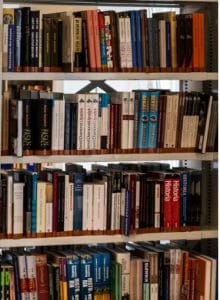The word ‘summer’ automatically rings a loud vacation bell in most minds of students around the world; time away from assignments, teachers, and BOOKS! They look forward eagerly to getting away from all “study-pressures.” However, many schools expect students to complete reading assignments in the summer holidays. This invariably leads them to often complain that “they do not have time” or find the exercise as a simple “unnecessary” burden. But their frustration and complaints are without any knowledge of the reason behind high school teachers giving these assignments.
The importance of summer reading, from an early age, can never be stressed enough. The “summer slide” post a school break, has been the bane of teachers at schools around the world. Students often come back with “reading and academic loss” as a result of the distance they have maintained from their books. They are prone to the risk of lagging behind those peers who have been pouring over books. Statistics have often proven, that leisure reading during this interim period, helps in vocabulary improvements, retaining information and better memorization of academic material. Not to forget, it is the greatest stress buster! It results in a smooth transition from the pre-summer period to the post-summer break. Teachers thereby save time in re-adaptation to the school curriculum and lessons with only a change in the intensity of the topic-related activities. The time translated into weeks saved is critical in covering other tasks and extra-curricular activities.
Many schools at a senior or IB level, give a prescribed reading list in which they are expected to read anything between 12 to 15 literary works depending on the course at standard or higher level. The titles are normally chosen to complement what the students are studying in other subjects. This might seem intimidating to students, but instead of being overwhelmed, they can subject their reading to personal choices. Depending on their interest in ideas, genres, time periods and subject, students can browse through the summary of the texts before picking their final choices. Part of reading at this stage of school is also about developing own interests as a reader.
 Perhaps the one single skill which is greatly enhanced through reading is the comprehension ability. It helps in developing critical skills as they analyze the novels thereby becoming better communicators. Additionally, students are also required to submit a 4,000- word, independently researched paper-the extended essay that requires them to present an in-depth analysis of their research on any topic. A dedicated reading habit improves focus on the researching process, analysing the vast plethora of matter available on the World Wide Web and allowing them to submit a well-written paper.
Perhaps the one single skill which is greatly enhanced through reading is the comprehension ability. It helps in developing critical skills as they analyze the novels thereby becoming better communicators. Additionally, students are also required to submit a 4,000- word, independently researched paper-the extended essay that requires them to present an in-depth analysis of their research on any topic. A dedicated reading habit improves focus on the researching process, analysing the vast plethora of matter available on the World Wide Web and allowing them to submit a well-written paper.
Students preparing for the journey ahead to colleges abroad, perhaps most singularly face the acid test of their linguistic skills. Scoring high grades in pre-board exams or finals are insufficient to confirm admissions. The elaborate process seems even lengthier when students are required to submit personal statements and essays with their applications. Applicants are required to submit a personal statement wherein they need to elaborate about themselves, their likes and dislikes, hobbies and passions and reasons for choosing the particular career path while also outlining their goals in that field. They have to, through the medium of that essay persuade the university board for their application to be considered. These essays give clarity to decide the applicant’s commitment to their goal and give an insight into their personality. University boards look at these essays for evidence that students can, not only write well but also support ideas with logical arguments. They also give a varied depth to the university board in determining the students’ command over the language, their abilities to collaborate, assess leadership and problematic skills, time management and how they can function under duress. But most importantly they help universities to determine what kind of students they are lacking in and will prove to be a boon on their student body. A dedicated reading habit here helps in improving creative writing skills by way of using proper vocabulary and forms of expression. In fact, many universities question applicants to give a list of the books they have read and why, which helps them understand the psyche of the students.
Reading through the summer is not a choice but a critical need to help students refine their linguistic and literacy skills. Those facing difficulties in concentration and focusing can use this period to improve these skills. Reading through newspapers or magazines, and not just books goes a long way in keeping them informed of the world at large too. Reading challenges available widely on the net prove a great way to motivate oneself to stay dedicated to the task. [The Master List of 2019 Reading Challenges by Tanya Patrice at www.girlxoxo.com] Reading clubs not just give ample chance to students to become great discussion-starters for points of debate but also open the mind to varied ideas and thus turn out to be great socializing hubs.
Blog Post by Sunita Bakhru
Bibliography:
- Johnson, Amanda. “Why Is Summer Reading So Important for Kids’ Success?” Study.com, July 2017, study.com/blog/why-is-summer-reading-so-important-for-kids-success.html. 2. Patrice, Tanya. “The Master List of 2019 Reading Challenges.” Girlxoxo.com, 6 Jan. 2019, www.girlxoxo.com/the-master-list-of-2019-reading-challenges/.


